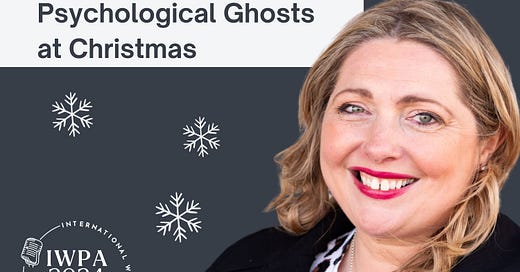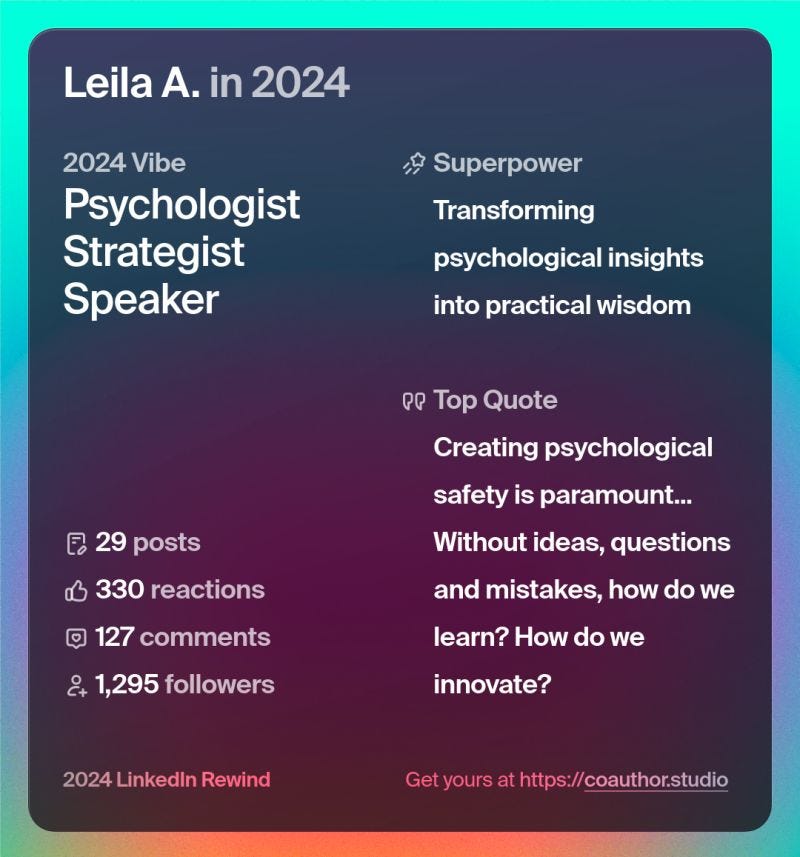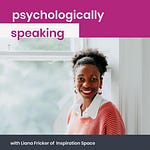As the year winds down, it’s natural to reflect on the choices we’ve made, the tasks we’ve left unfinished, and the comparisons we can’t seem to stop making. Inspired by Dickens’ A Christmas Carol, I’ve been thinking about psychological “ghosts” and the role they play in our lives. What can they teach us about regret, uncertainty, and the importance of finishing—or letting go of—what we start?
The Disjunction Effect: How Uncertainty Holds Us Back
Decision-making has been a core part of my work, whether managing projects or leading teams. Over the years, I’ve learnt that while careful planning is important, it’s often the ability to embrace uncertainty that keeps things moving.
We like to think that successful projects follow a clear, predictable path. But the truth is, uncertainty is always part of the process. It’s what gives projects their vitality—especially when teams feel empowered to make decisions. Without this momentum, projects can stall, and that sense of stagnation is both demoralising and costly.
Interestingly, uncertainty also has a way of paralysing us through a phenomenon called the “disjunction effect.” In an experiment, people were asked if they would book a trip to Hawaii before receiving their exam results. Those who knew they had passed or failed were more likely to make a decision, while those still waiting for their results froze, despite the outcome being irrelevant to the decision itself.
It’s a phenomenon that feels familiar. The fear of uncertainty often keeps us from acting, even when we know the decision itself won’t change based on the unknown. In projects, this can lead to analysis paralysis—an exhausting state where progress slows and opportunities are missed.
My reflection this year has been that we can’t and shouldn’t eliminate uncertainty. I’m not suggesting avoidance as a wholesale approach to getting ahead and getting stuff done. After all, it’s a tenet of psychological safety that we confront uncomfortable truths. But we can often make a small decision. Decisions create momentum, and momentum moves us forward.
Regret: A Teacher, Not an Enemy
The phrase “no regrets” is often thrown around as though regret is inherently negative. In A Christmas Carol, we see how Scrooge regrets his uncharitable choices, and part of his character transformation is how he comes to regret and make good on his actions against others. The tale, in one respect, is layered upon the consequences of one decision leading to another in a downward and miserly spiral. But I’ve come to see regret differently. Regret can be a powerful motivator when it’s reframed as a learning tool.
For 17 years after I finished my business course, I carried the regret of not topping up to a full degree. At first, it felt like a weight, a chip on my shoulder, but over time, I came to see that I had made good decisions, and I was where I wanted to be. Instead of regret, it pushed me to pursue education in a different discipline. What started as regret became a source of motivation.
Unfinished Business and the Zeigarnik Effect
We all have unfinished projects that linger in our minds, from half-written emails (I am the queen of starting and not sending emails) to abandoned hobbies. There’s a helpful reason they stay there: our brains (you can read more about forgetting and remembering in my earlier post ‘Why do we forget?’)
hold onto incomplete tasks more than completed ones so we don’t forget them.
This year, I made it a priority to clear out some of my own unfinished business. Tackling long-delayed home renovations and decluttering possessions gave me a surprising sense of relief. Each task I completed felt like a small weight lifted. A few weeks ago, I sewed up 10 sets of fabric bunting. Each triangle had been cut, stitched, turned inside out, and ironed five years ago. Then we moved house, and the easy part of the task—sewing each triangle onto a ribbon—stayed unfinished in a box that I have moved around rooms ever since. A classic case of the task not being difficult or interesting enough to get re-started, and the original motivation (I’d been fundraising for a charity run) had long passed with the target met. So I had to force myself to set a deadline to complete the lot in a timed session. It worked, and next year you may get the gift of bunting if you are a dear friend.
But not everything needs to be finished. I’ve been struggling with my PhD—a monumental commitment that has, at times, felt overwhelming because I’ve not nailed the hypothesis and question. The temptation to quit is strong, but so is the fear of regret. I’ve started to ask myself whether it’s okay to say “not now” instead of “never.” Can I trick my brain out of this weird space of unfinished business and regret? After all, sometimes leaving something unfinished can be a form of self-care, a way of saving space for future growth.
Comparison and Anticipated Regret
To do this, I need to tackle an uncomfortable truth about comparison: it often complicates our relationship with unfinished business. During the holidays especially, we compare ourselves to others—how their homes look, what they’ve achieved, and even their sense of joy. It’s easy to feel like we’re falling short.
This kind of comparison can be especially challenging in spaces of ultra-visibility. It’s been a recurring theme as I navigate and juggle my career and PhD while grappling with sunk costs. Most PhD journeys can feel lonely and solitary, and the temptation to compare feels like it should be a comfort blanket—that others feel this way too, and it’s all okay. Except, it isn’t okay to feel this way all of the time.
This year’s earlier Psychologically Speaking podcasts on Imposter Phenomenon highlighted the nuanced ways in which we use comparison. So I can take my own research and see comparison as a tool that can be helpful too. There was a curious moment for me when I took part in the LinkedIn Coauthor 2024 rewind. It was like AI had stripped back all of my concerns and doubts and said, “Here, this is what you did this year, and you have made progress!” For balance, it also hallucinated another series of Psychologically Speaking, so perhaps it was positively biased.
Anticipated regret is another layer to unpack. We try to predict how we’ll feel about a decision in the future, often freezing in the process. Last month, I made the hard decision to suspend my PhD for a specific period of time. I can’t anticipate a full stop right now, and I wasn’t in the best place to make that big decision. It wasn’t easy, but it felt necessary to make a smaller decision. Sometimes, stepping back is the best way to regain perspective.
Lessons Learned: Finding Closure in the Unfinished
As I look back on this year, I find it curious but unsurprising, then, that I’ve taken steps to resolve a lot of my unfinished business. I’ve been projecting the frustration of the PhD into other areas where it’s easier to see the next step. And a lovely cascade of momentum started: we finally replaced our leaky roofs, a project that had been on hold for far too long. This opened the door to other long-overdue rewiring and plastering.
But I’ve also come to accept that not everything needs to be finished right away. My home is a metaphor for my imperfect life. We have half-stripped walls, renovated rooms, and rooms I shut the door on and avoid for whole days at a time (granted, nine-year-olds do come with endless pieces of Lego, random Pokémon cards, and pens that are missing lids), and rooms that need gutting completely. But I can see or imagine a way forward. Some things can stay as in progress, serving as reminders of the journey we’re on. Life doesn’t need to be perfectly tied up in a bow, or even need to go to plan to be meaningful.
The ghosts of past, present, and future in A Christmas Carol weren’t there to overwhelm Scrooge with information or endless options. They were there to show him the bigger picture and inspire him to act. In the same way, the psychological “ghosts” of regret, uncertainty, and unfinished business can guide us to better decision-making—if we let them.
So as the year comes to a close, I’m taking stock. I want to acknowledge my psychological ghosts, but they won’t hold me back from success. Some things need to be finished, and others can wait. And that’s okay. Life is, after all, a work in progress
Here’s my Linkedin positive spin on 2024
I love this vibe! However, someone mentioned I was a perfectionist this week, so I've resisted the urge to change the AI generated words below... but I do have to say that AI is now holding me accountable to releasing season 2 of Psychologically Speaking 🎙️ (Annabelle Buckland - 👀 )
*The AI voice of Leila*
2024 taught me that psychological safety isn't just something we create in workplaces - it shows up in unexpected moments, whether that's playing cards in a quiet pub with my child, finding strength on Peak District trails during menopause, or having honest conversations about imposter experiences on the podcast. 💭
Speaking of honest conversations... what a year for Psychologically Speaking! 🎙️ Being nominated for the International Women's Podcast Awards (and visiting Apple HQ!) was incredible, but the real joy came from exploring imposter phenomenon with amazing guests. Each episode reinforced what my research shows - that context matters more than armor, especially when navigating professional challenges.
Three posts that captured meaningful moments this year:
"Podcast Nomination & Apple HQ Visit"
On being shortlisted for 'moment of factual clarity' and connecting with fellow podcasters
https://lnkd.in/eKyaUVw3
"World Menopause Day"
On finding strength through running and learning to reduce workload before burnout hits
https://lnkd.in/eCU54Fdr
"Monday Evening Cards"
On creating relaxed environments and adapting routines for SEND parenting
https://lnkd.in/ePXxGPzf
The year brought new paths to explore too - joining University of Derby's Student Success Programme, continuing research on entrepreneurial networking, and serving the East Midlands British Psychological Society branch. Each role reinforced that psychological safety starts with making room for our whole selves.
Looking ahead: 2025 brings Season 2 of Psychologically Speaking, the BPS Midlands Conference, and more research into how imposter experiences shape professional identity. Plus plenty more runs in the Peak District - because sometimes the best insights come when you're just putting one foot in front of another. 🏃♀️
To everyone who's shared stories, joined workshops, or simply connected over shared experiences - thank you for making 2024 psychologically richer. Your willingness to be authentic creates space for others to do the same. ♥️
P.s. If anything here resonates, the podcast is available on all platforms. Would love to hear your thoughts!
















Share this post